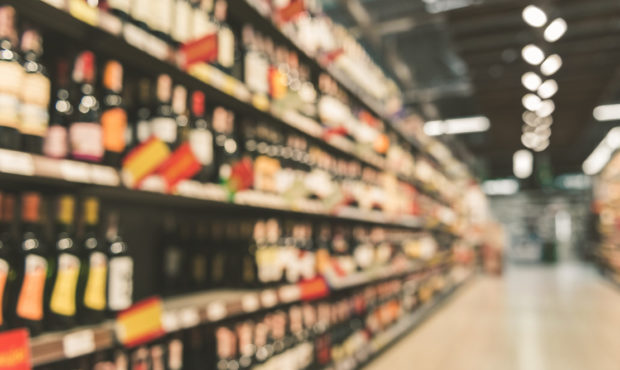Change in Utah beer law could slow DABC growth
Nov 1, 2019, 3:47 PM

Liquor store in Murray. (Photo credit: Steven Breinholt, Deseret News)
(Photo credit: Steven Breinholt, Deseret News)
SALT LAKE CITY, Utah –Friday is an unofficial holiday for beer connoisseurs in the Beehive State. It’s the first day that a new beer law takes effect, allowing beer up to 5% alcohol by volume to be sold at grocery and convenience stores in Utah.
Not only will the modified law bring change to supermarket shelves, but it also will have an impact on state-run liquor stores.
First of all, officials with the DABC are waiting to see the financial ramifications of greater leniency at private businesses. In short, it’s not great news for them.
“We’ll probably not have as high of growth as we’ve had just recently,” said DABC spokesman, Terry Wood. “Where we’ve been growing anywhere from five to seven percent.”
He doesn’t think they’ll start losing money, but with people visiting other outlets to buy beer it’ll certainly provide a hit to their revenue.
With that in mind, he reiterates the new beer law only came into effect today. Therefore, he says, the DABC remains in “wait and see mode” in regards to what sort of financial impact this all will have.
Those visiting a state liquor store will begin to notice changes. That’s because they no longer will carry any beers under 5% alcohol by volume.
“We don’t enter into competition with private enterprise and those are privately owned and run businesses,” Wood said.
They will be carrying beers over that five percent mark, in addition to their normal selection of hard ciders and malt beverages.
The abandonment of “weak” beer will clear a significant amount of space at stores around the state.
“We will be filling that liquor store shelf space with other products,” he said. “Some of them will be beer, some of them may be wine or spirits.”
The DABC was still uncertain about how to discard the remaining 3.2 (alcohol by weight) beer until this afternoon when they announced it will be recycled.
Officials say only a hundred or so cases remain; they’ll be utilizing Momentum Recycling, which has equipment available that can process the aluminum while absorbing the liquid.













